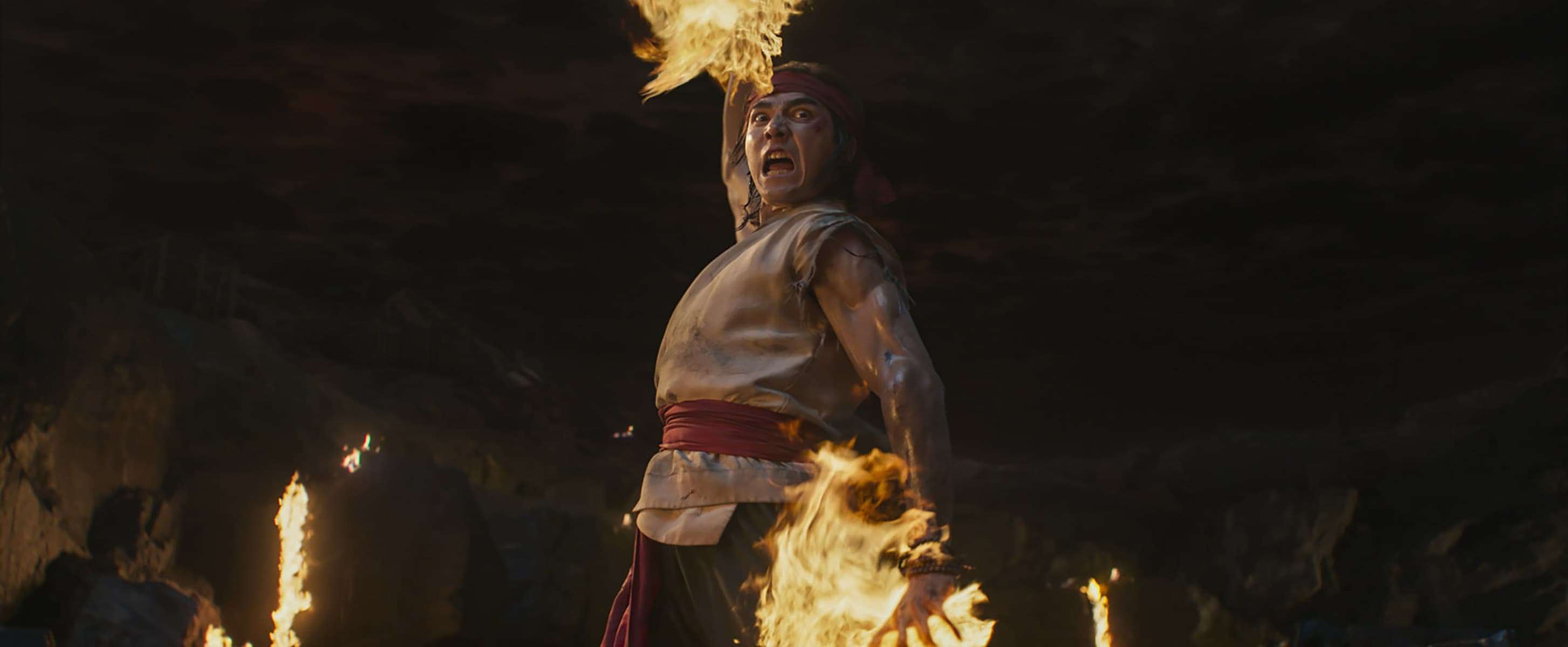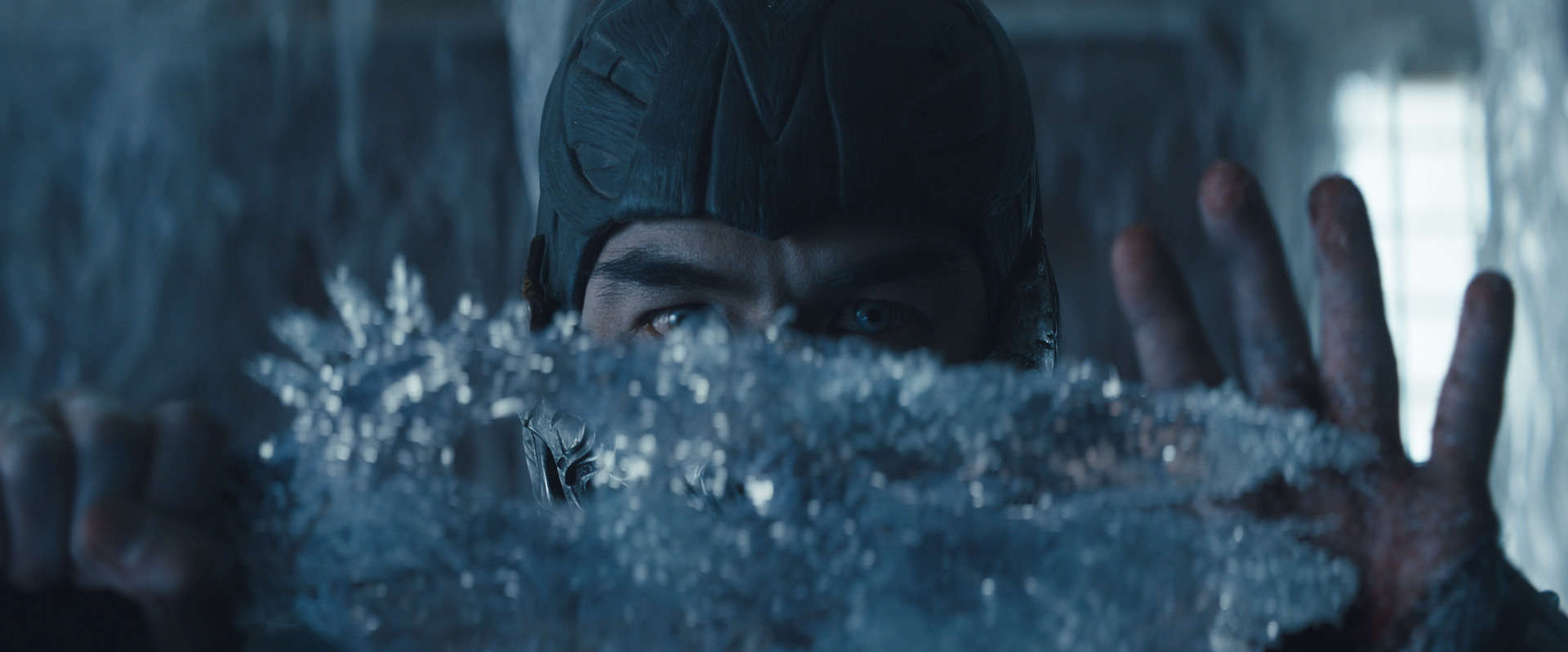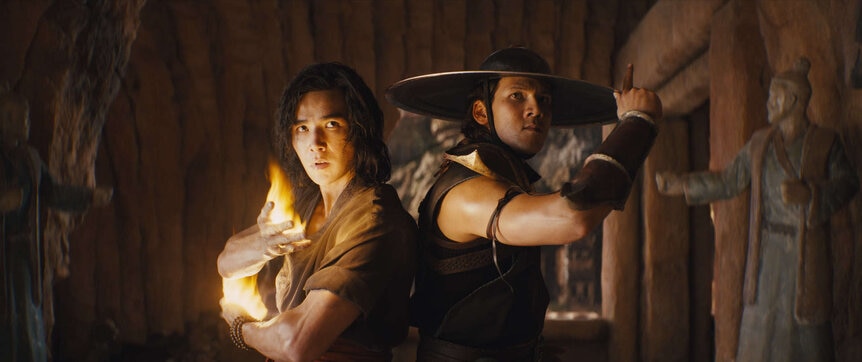Create a free profile to get unlimited access to exclusive videos, sweepstakes, and more!
Director Simon McQuoid brings 'respect and authenticity' to the 'ultimate' sci-fi Mortal Kombat update

Mortal Kombat is credited with being one of the first games to create backstories and extended universes for its characters and one of the first Western games to feature Asian characters as heroes. Mortal Kombat was also one of the most heavily criticized video games, and not just because of its gratuitous violence and gore. Like a lot of Asian-inspired entertainment in the '80s and ’90s, much of the lore was based on Western translations of Eastern philosophy and ethnicities, and these stereotypes often led to seemingly innocuous, yet totally bungled, interpretations of Asian aesthetics. (For example, Chinese character Kung Lao’s signature weapon is based on a Korean military hat called a Jeonrip from an entirely different culture.)
Simon McQuoid, the director behind the upcoming Mortal Kombat movie set to premiere in theaters and on HBO Max next month, was aware that Western movies with Asian aesthetics have been under fire for cultural appropriation and lack of understanding of the source material. McQuoid challenged his team to create a Mortal Kombat world that would be loved by the massive (and very vocal) fanbase and newcomers to the franchise while also being as culturally respectful as possible.
During SYFY WIRE’s visit to the set of Mortal Kombat in Adelaide, Australia, the phrase that McQuoid kept repeating was “respect and authenticity.”
“They're really fantastic characters,” McQuoid said. “And I wanted to bring them to a place that feels like we give them respect and then elevate them.”
Actor Joe Taslim, who plays the cryomancer fighter Sub-Zero, agreed with this sentiment. “The two previous movies focused more on the tournament,” Taslim said, referencing the film adaptations of the series from the '90s. “But this one is more about the characters. Fans will love it because they can see the humanity in the story. It’s deeper.”
Video game canon wasn’t the only area where McQuoid focused on authenticity. McQuoid meticulously researched the fantasy origins of each character in the film to cast their real-world counterparts. “I've never worked with someone so serious about being authentic to another culture,” Ludi Lin (who plays Liu Kang) said. “Simon really wanted to cast the right origin, ethnicity, and background for each character."
Case in point, actors and martial artists Lin and Max Huang (Kung Lao) are both of Chinese descent. Raiden, a fan-favorite played by Christopher Lambert in the original 1995 movie and again by Black Lightning's James Remar in the 1997 remake, is actually based on Japanese thunder god Raijin. This go-around, the Earthrealm protector is played by Japanese actor Tadanobu Asano, who, ironically, appeared in another thunder god movie, Thor. And of course, Taslim, who is of Chinese-Indonesian descent is playing both Bi-Han and his alter ego Sub-Zero.
The “respect and authenticity” directive extended to the entire production, and everyone SYFY WIRE spoke to — from the stars to the creators and artists working behind the scenes — all agreed that McQuoid wasn’t just paying lip service. “When Simon and I talked early on, the keyword with him was 'authentic,'” production designer Naumann Marshall (Westworld, The Dark Knight) remembered.
"Everything needed sanding and wear to it," he continued. "And all the props and weapons and everything must feel worn and abused.”
“We were also careful not to oversexualize the female characters like Mileena," costume designer Cappi Ireland added. “Because we’ve all seen what she wears in the game and that just would not have been practical for what we're doing.”
Producer E. Bennet Walsh explained that the film starts out in 15th-century Japan, and that when actor Hiroyuki Sanada (who plays Scorpion) was concerned about the Japanese elements of the story, the creators made sure to make design changes, as per the actor’s request.
That respectful and collaborative atmosphere the cast members felt on set gave them the freedom to do what fans are most excited about: FIGHT!
“I think the authenticity overall is not only regarding the casting but also having actors who can really fight,” Huang said. “I mean, this is what people want to see. If we cut away to a stunt double and let them fight not showing their face, people know."
Even Sanada got in on the action with the rest of the cast. “He was almost 60 years old [at the time], and he came into this thing doing his own stunts and fights,” Walsh said, clearly impressed.
Lewis Tan (Cole Young) remembered the times when he would see Taslim and Lin researching "anything having to do with their characters in the game. Every single costume [and] movement their characters had ever done.
"They would watch it and add little Easter eggs to the choreography. It was so cool," Tan added.
“There's a lot of fights in it. And they're not all the same style of fight," McQuoid noted. “But we didn't want to get fight fatigue. It was really about building character and story within the fight itself.”
As Taslim explained: “A fight scene and a heavy drama scene are the same. But in a heavy drama scene, people throw lines that translate into words and meaning. In a fight scene, we don't say anything, but we deliver [our message] through our kicks, punches, pain, agony, and struggle.”
One of the other features of this iteration of Mortal Kombat is the number of practical effects. Kanaan and McQuoid found some incredible locations to use in Australia, and with a cast this talented, it was easy to create a lot of unforgettable in-camera moments. “It's not people running around in the parking lot with a big blue screen behind them,” McQuoid said. “All of the fights are in-camera, and we just enhance them. So there's a real sort of connective tissue to the audience.”
That lack of green screen and stunt doubles means fans will see some pretty epic fight scenes.
“Let's just say, hypothetically, Joe and I had a fight,” Tan said. “You could shoot that fight in a nice wide shot, not have to cover things up. It's like two dancers; you just show them and just let them dance.” He confirmed that at least one scene in the movie has over 40 beats of fight choreography in one continuous shot.
”That, for me, is what the ultimate sort of fantasy or science fiction film is," McQuoid said. "When you really believe. And the way you believe is to make these very authentic scenes and characters and things that have a great heart to them that you really care.”
Mortal Kombat premieres in theaters April 16 and will be streaming on HBO Max for no additional charge for one month.





























